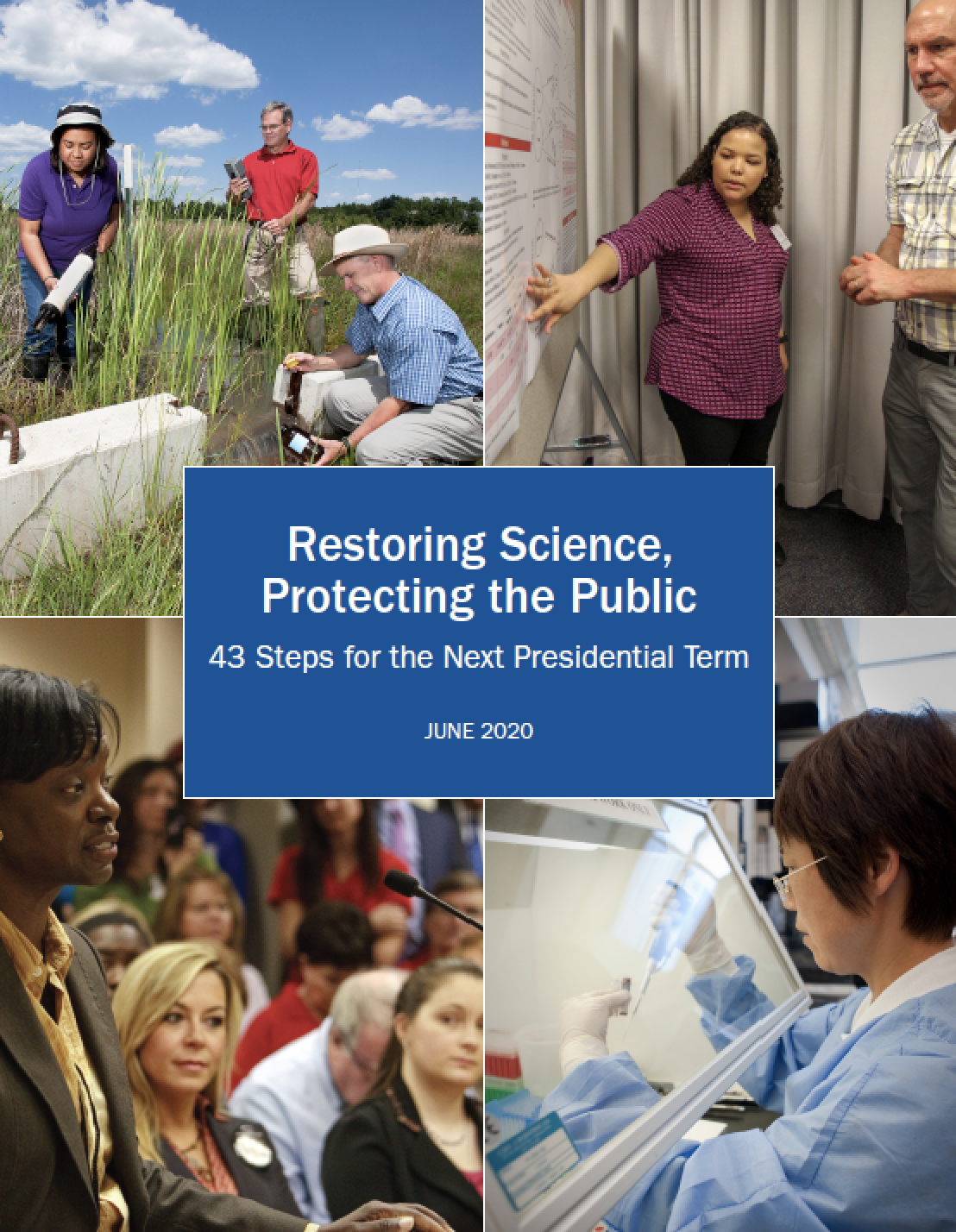
A guest repost by the Climate Science Legal Defense Fund (CSLDF). Fundraising is not the objective of this article but readers may wish to know that CSLDF is currently conducting a summer fundraiser to support the important work of defending research scientists and research integrity from anti-science interference by politicians and industrial interests.
We’re one of the dozens of organizations working to advance good government, public health, and environmental, consumer, human, and civil rights, who today [June 11] collectively released Restoring Science, Protecting the Public: 43 Steps for the Next Presidential Term.
The COVID-19 crisis shows what can happen when science is sidelined from policy decisions or subverted for political purposes. When data is suppressed or manipulated, or medical experts and scientists are prevented from sharing their expertise with the public, the result is a dearth of information the public needs to operate safely during a pandemic—and more people get sick and die.
The politicization of science isn’t new, but it has escalated into a full-blown crisis under the Trump administration. In the Silencing Science Tracker we maintain with Columbia Law School’s Sabin Center for Climate Law, we’ve documented 428 instances of science being censored or restricted since November 2016. Many of these actions pose troubling risks to public health.
The next administration must prioritize repairing the culture of scientific integrity in the federal government. Federal scientists must be free to pursue valid research and communicate their findings to the press and taxpaying public without fear of political interference or manipulation. Those in federal agencies who have decision-making authority on matters that involve or use science must fully consider the best available science. And much more.
This series of memos provides concrete steps the next administration can take to restore a culture of scientific integrity across the federal government. These would help rebuild public trust in scientific institutions and ensure that scientific evidence informs government decisions. They also represent simple, low-cost, good government reforms that would improve efficiency, transparency, and accountability.
The memos offer recommendations in eight categories:
We will share these recommendations with major presidential campaigns and transition teams. We encourage all who have influence over White House and executive branch priorities in 2021 to read these short documents and take them to heart.
Posted by Guest Author on Monday, 22 June, 2020
 |
The Skeptical Science website by Skeptical Science is licensed under a Creative Commons Attribution 3.0 Unported License. |